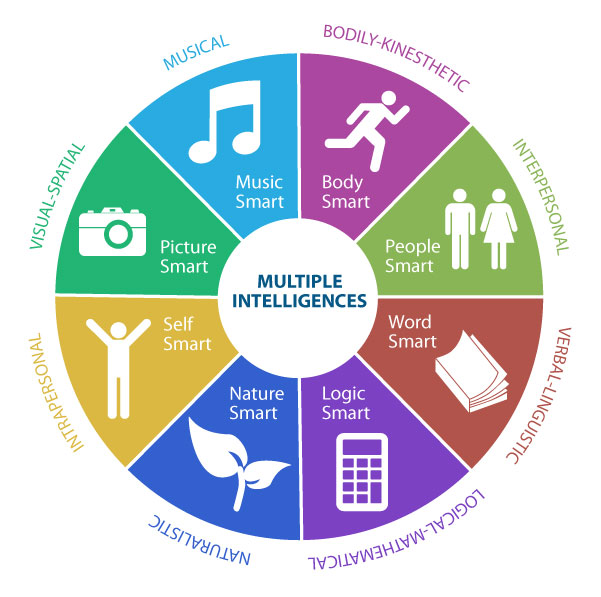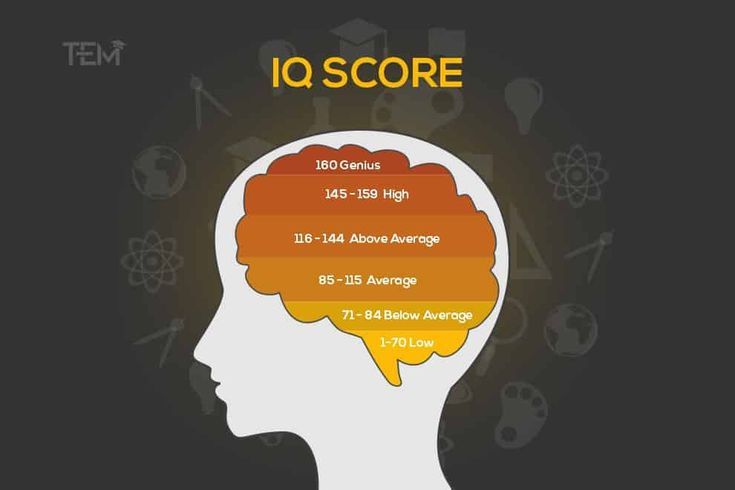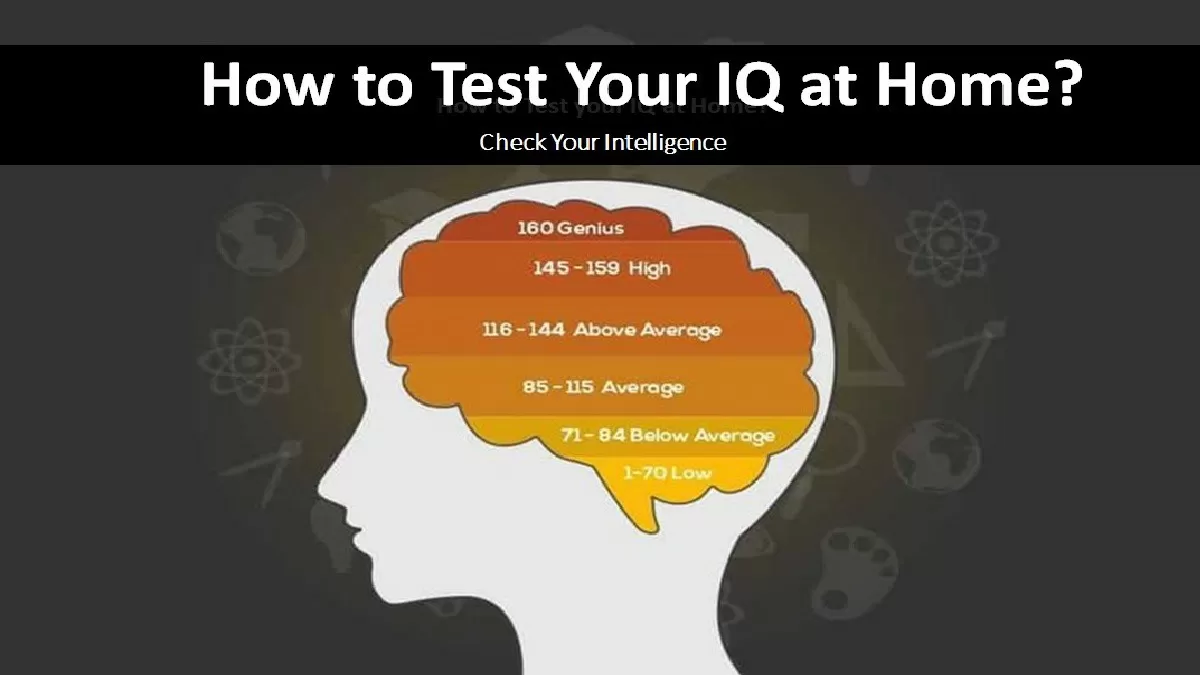How to test IQ at home: In an era where self-improvement and personal growth are highly valued, understanding one's intellectual capacity has become increasingly important. Testing your intelligence quotient (IQ) can provide valuable insights into your cognitive abilities. While professional IQ tests administered by psychologists remain the gold standard, there are also alternate ways to gain a rough estimation of your IQ from the comfort of your own home. This article explores various methods and provides a step-by-step guide for conducting an IQ test at home.
| In this article, we cover:
|
Human intelligence is one of the most fascinating researched subjects in the field of psychology. We all are good and skilled at something. Some of us are good with numbers while some of us are good with visualizing patterns. Some of us can learn 8 languages while some of us can solve a 3x3x3 Rubik’s cube in less than 4 seconds. However, most people are never fully aware of their intelligence level which leads them to dissatisfied careers and life.
It is crucial to understand what IQ and what is the relevance of IQ in everyday life. Therefore, first, we shall define what is IQ, why is it important to test your IQ, what are the ranges of IQ scores, different types of IQ tests, how to choose the right IQ test for you, how can you test your IQ at home, and some cognitive tests to test IQ and problem-solving skills. Knowledge of one’s IQ can aid in assessing personality traits, and personality development, making the right career choices, and gaining overall self-awareness.
What is IQ?
Intelligence quotient, which abbreviates to IQ was coined by psychologist William Stern as a measure of a person's general intelligence. It is calculated by the score obtained by an individual through standardized IQ tests for different age groups. These tests are designed to measure a variety of cognitive abilities, including verbal reasoning, spatial reasoning, and mathematical reasoning.
"Intelligence is the ability to adapt to, shape, and select environments to accomplish one's goals and those of one's society and culture." - Sternberg & Kaufman

Howard Gardner, a psychologist and professor at Harvard University, in 1983 first proposed a theory of multiple intelligences. Gardner’s theory suggests that there are many different ways to be intelligent. Gardner identified 8 different types of intelligence:
- Linguistic intelligence: The ability to use language effectively.
- Logical-mathematical intelligence: The ability to think logically and solve problems.
- Spatial intelligence: The ability to think in three dimensions and visualize objects.
- Bodily-kinesthetic intelligence: The ability to use one's body to solve problems or create art.
- Musical intelligence: The ability to appreciate and create music.
- Interpersonal intelligence: The ability to understand and interact with others.
- Intrapersonal intelligence: The ability to understand oneself.
- Naturalist intelligence: The ability to understand the natural world.
Gardner's theory of multiple intelligences suggests that there is no single definition of intelligence. Rather, intelligence is a complex and multifaceted ability that can be expressed in many different ways.
Why is it important to test your IQ?
There are a few reasons why it might be important to test your IQ. Other than a measure of intelligence, some of the additional reasons to test IQ include identifying people who may need extra help in school or in the workplace.
Identifying intellectual giftedness: IQ tests can be used to identify children who are intellectually gifted. This can be helpful in ensuring that these children receive the appropriate educational and other support.
Diagnosing intellectual disabilities: IQ tests can also be used to diagnose intellectual disabilities. This can be helpful in providing early intervention and other services to children with these disabilities.
Education and career planning: IQ tests can be used to help with educational and career planning for children and adults. This can include identifying areas where additional support is needed, as well as identifying areas where a child or adult may be able to excel. These tests can also help in identifying occupations that are a good fit for a person's skills and abilities.
Research: IQ tests are also used in research on intelligence. This research can help us to better understand how intelligence develops, how it is related to other factors, and how it can be improved.
To learn more about yourself: IQ tests can provide you with insights into your strengths and weaknesses, and they can help you to understand your learning style. This information can be helpful in setting goals for yourself, and it can also help you to make better decisions about your education, career, and life.
To motivate yourself: Knowing your IQ can help you to set realistic goals for yourself, and it can also help you to stay motivated when things get tough.
To gain a competitive edge: In some cases, IQ tests may be used as selection criteria for jobs or schools. Knowing your IQ can give you an advantage in these situations.
What are the ranges of IQ scores?

The fourth edition of the Wechsler Adult Intelligence Scale (WAIS-IV) is considered to be the gold standard for measuring intelligence which comprises the following IQ score range:
130 and above: Very Superior
120 to 129: Superior
110 to 119: High Average
90 to 109: Average
80 to 89: Low Average
70 to 79: Borderline
69 and below: Extremely Low
Different types of IQ tests
There are many different types of IQ tests, each with its own strengths and weaknesses. These comprehensive IQ tests are used to assess intelligence in children and adults. These are reliable and valid tests that are widely used by psychologists and other professionals. Here are a few of the most popular IQ tests:
Stanford-Binet Intelligence Scale: This test is one of the most widely used IQ tests in the world. It is designed for children and adolescents ages 2 to 25.
Wechsler Adult Intelligence Scale: This test is another popular IQ test that is designed for adults ages 16 to 90.
Raven's Progressive Matrices: This test is a nonverbal IQ test that is designed for people ages 6 to 65.
How to choose the right IQ test for you?
By taking an IQ test and using resources to improve your IQ, you can learn more about your intelligence and how to maximize your potential. However, to ensure you are taking the right IQ test you must consider a few factors to consider when choosing an IQ test.
Age: Some IQ tests are designed for specific age groups. For example, the Stanford-Binet Intelligence Scale is designed for children and adolescents, while the Wechsler Adult Intelligence Scale is designed for adults.
Format: IQ tests can be administered in a variety of formats, including paper-and-pencil, computer-based, and oral. Some people prefer one format over another, so it is important to choose a test that is administered in a format that you are comfortable with.
Length: IQ tests can vary in length from 30 minutes to several hours. If you are short on time, you may want to choose a shorter test.
Cost: IQ tests can range in price from free to several hundred dollars. If you are on a budget, you may want to choose a free or low-cost test.
Once you have considered these factors, you can start to narrow down your choices. There are a number of reputable IQ tests available, so you should be able to find one that is right for you.
How can you test your IQ at home?
There are a number of online IQ tests that you can take at home. These tests are not as accurate as traditional IQ tests that are administered by a psychologist, but they can give you a general idea of your IQ.
Here are a few of the most popular online IQ tests:
123test.com
123test is a great online platform for IQ tests. The test includes an assessment with questions related to numerical reasoning, logical reasoning, verbal intelligence, and spatial intelligence. The tests provide reliable IQ scores. The tests also help you know whether you have the required high IQ for a job position.
Genius Tests
Genius Tests is another reliable online platform for testing your IQ. The platform offers both short and long assessments. The test is divided into five sections: verbal, spatial, numerical, abstract reasoning, and memory. The test results are scored on a traditional IQ scale.
Free-IQTest.net
Free-IQTest is one of the most well-known online platforms to measure your intelligence. The assessment includes 20 questions that will determine your IQ score immediately. On Free-IQTest, you have to provide your date of birth as the test assesses your IQ score based on your age. Test your IQ level with Free-IQTest.net to see what your IQ score is compared to your peers.
When taking an online IQ test, it is important to follow the instructions carefully and to answer all of the questions honestly. It is also important to remember that online IQ tests are not a substitute for a traditional IQ test administered by a psychologist.
Cognitive Tests to Test IQ and Problem-Solving
In addition to online IQ tests, there are also a number of cognitive tests that can help you to improve your IQ. These resources can help you to improve your cognitive skills, such as memory, attention, and reasoning. Some of the alternative methods of assessing cognitive abilities and IQ include brain teasers, puzzles, math riddles, etc.
Conclusion
Testing your IQ at home can be an intriguing and enlightening experience, offering insights into your intellectual potential. While self-administered tests have their limitations, they can serve as a starting point for self-reflection and personal development. Remember that IQ is just one aspect of intelligence, and nurturing other cognitive abilities and skills is equally important. By exploring different methods and being aware of the caveats, you can embark on a journey of self-discovery and understanding of your intellectual capabilities.
